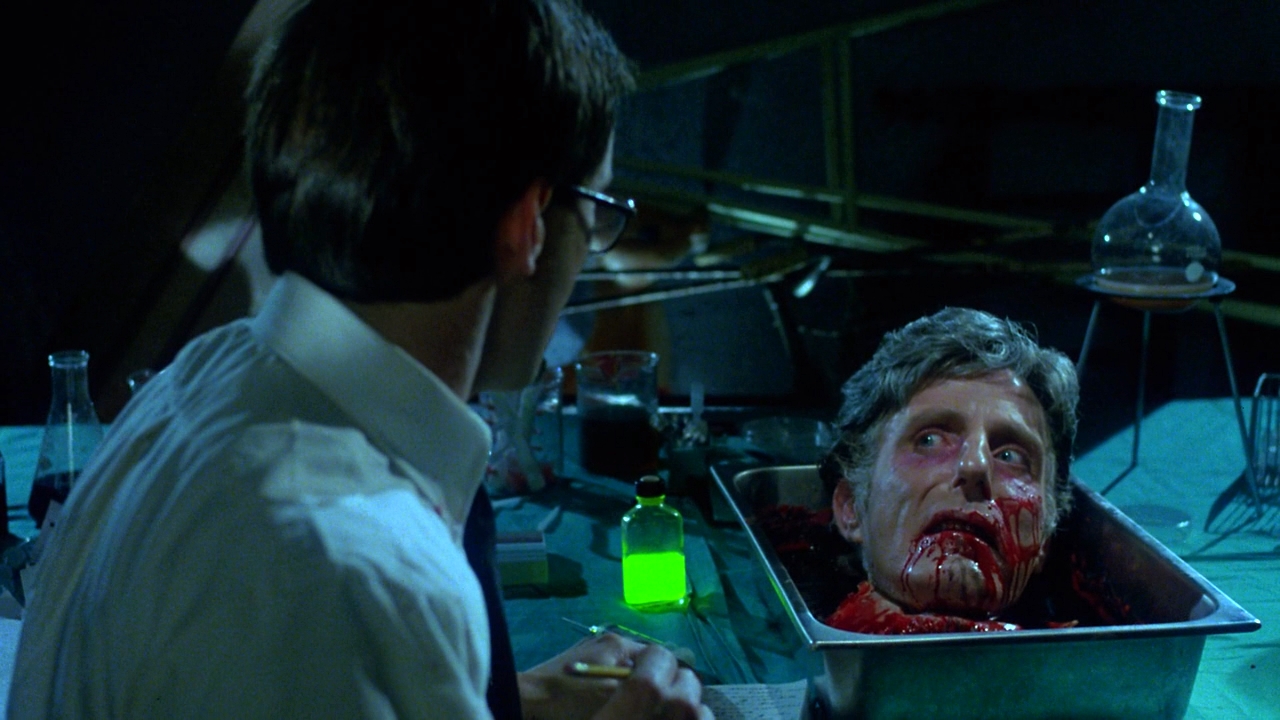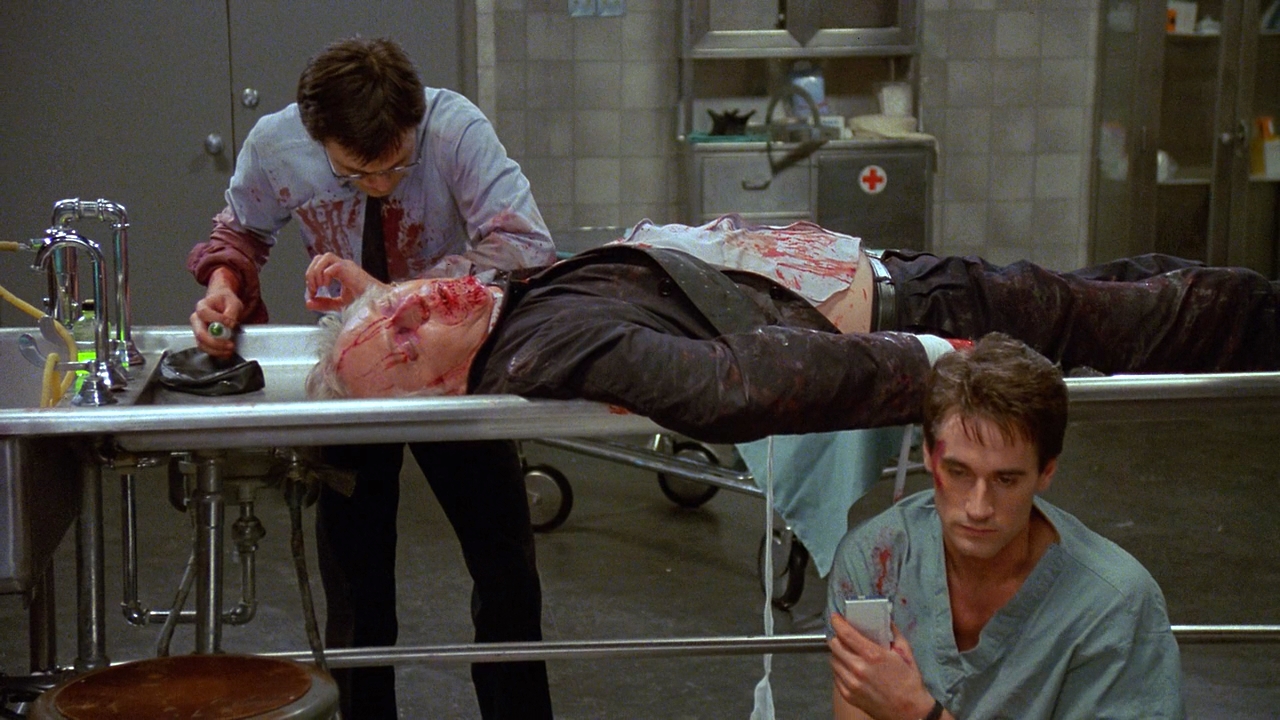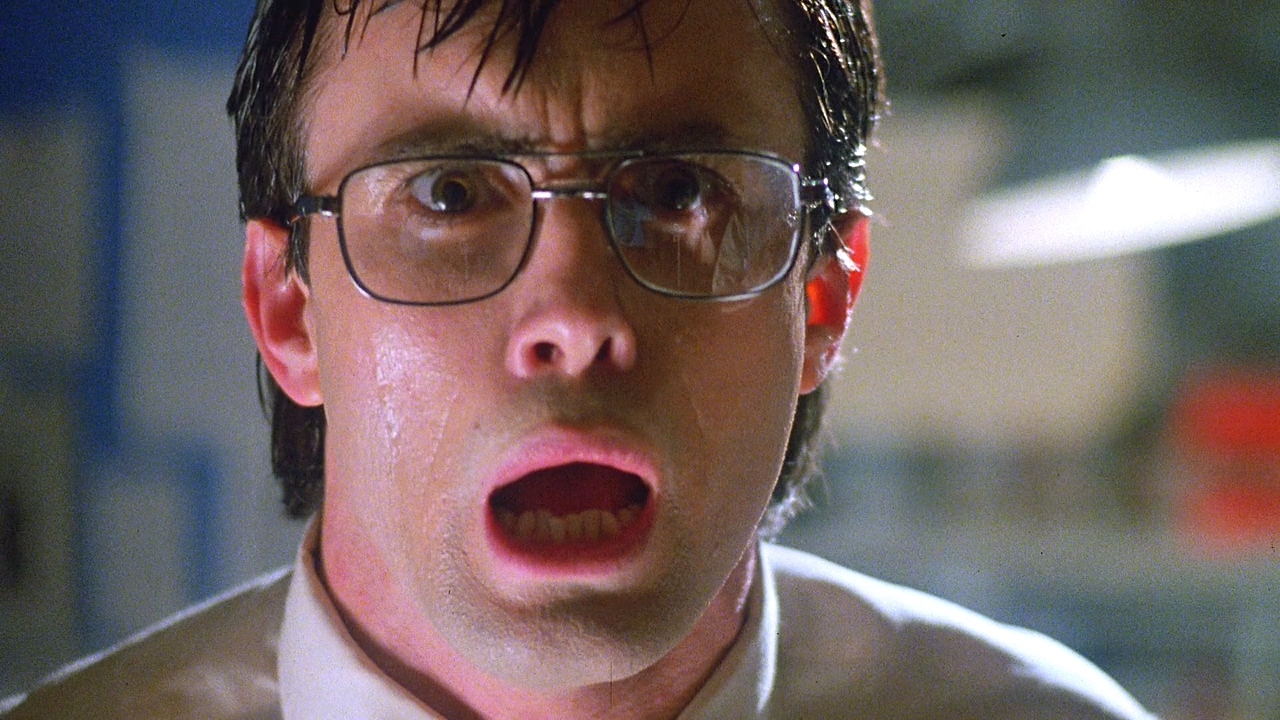Master of horror Stuart Gordon on Re-Animator and why it’s so tough to get HP Lovecraft right…
In 1985, a low-budget HP Lovecraft adaptation would stun audiences and critics around the world. With its outrageous use of gore and keen sense of wit, the inventive, infectious fun of Stuart Gordon’s Re-Animator imbued it with instant cult-classic status as mad doctor Herbert West gave life to the dead with anarchic results. “I’m glad it has held up and people are still watching it, I think that’s amazing and wonderful,” the director tells us.
For Gordon, a Chicago native theatre director, it was the beginning of a filmmaking career steeped in the work of the father of weird fiction. Indeed, he tells us that Re-Animator started life as something much closer to Lovecraft’s original version.
“When I first started, I wanted to do it for television as a six-part miniseries, because Lovecraft wrote it in six instalments as a serial,” he remembers. “When we first started working on the adaptation we were very faithful to Lovecraft, and even set it in the period, but as we continued working on it, it became clear that it really needed to be a feature, and we ended up bringing it into the present day.”
The present-day setting wasn’t the only update to the story. Bright-red blood, bright-green goo and all manner of gory special effects would make Re-Animator very much a film of its time, but Gordon tells us that his pitch for the film was always classical. “I would call it a modern Frankenstein story. At the time, vampire stories were very popular, and I kind of felt like it was time to do Frankenstein again – and the mad scientist; it’s a classic horror trope.”
The Dr Frankenstein figure – and the breakout star of Re-Animator – would, of course, be Jeffrey Combs. The actor has gone on to carve out a niche for himself as a cult horror icon, but it’s Herbert West that has remained the definitive role of his career. “Jeffrey walked in and auditioned, and he really had the character; he nailed it. Herbert West in the story is described as being blonde and blue-eyed, and Jeffrey is neither of those, but he walked in and he had the attitude, and he was perfect. It was one of those things where we just looked at each other and said, ‘This is Herbert West.’”
With a very low budget and a cast of unknowns, the pressure was on for Gordon to deliver with such an ambitious feature debut. However, his experience gave him the preparation he needed. “My background is in the theatre, and so were most of the actors’. We rehearsed it for a couple of weeks before we started shooting, and I think that was really helpful. It was great, because we had such a short time to shoot it.”
No amount of rehearsals could really prepare anyone for the film’s lunatic climax in which West’s nemesis Dr Carl Hill (David Gale) marshals an army of corpses to attack our heroes in the campus morgue, all while his head is separated from his shoulders.
“I think the biggest problem is you’ve got a character who walks around without a head for about 20 minutes in the movie,” laughs Gordon. “We felt that we needed to keep changing the technique, because the audience was going to figure out what we were doing if we did the same one over again. So the special effects guys were ingenious, and they came up with these different approaches to it, and it really worked. [Gale] spent a lot of time under the autopsy table. He had his head in the pan, so we kept referring to him as the man in the pan.”
With talking severed heads, furious reanimated cats and attempted sexual assault by said severed head, you would be forgiven for assuming that the critical reaction to Re-Animator would not be enthusiastic, but you would be mistaken. On its release, luminaries like Roger Ebert and Pauline Kael praised the film, which took Gordon completely by surprise.
“It’s funny, I think there’s a lesson there, because I just assumed that critics would hate it,” he remembers. “And I kind of wrote them off, I said, ‘Okay, what’s important is that the fans like the movie, the people who love horror will like this film.’ And then the reviews ended up being spectacular, and it was really Roger Ebert I think who led the critical charge on that one.”
Following the film’s success, Gordon’s name became synonymous with Lovecraft and genre films. He’s adapted the author’s work in From Beyond, Castle Freak, Dagon and his Masters Of Horror episode ‘Dreams In The Witch House‘.
“Well, I like doing horror,” he tells us. “And I think the way Hollywood works is that whatever you do that’s successful, they want you to keep doing it. So after Re-Animator I was a horror maestro. For Lovecraft, what we really wanted to do, Brian Yuzna – who produced the film – and I had this idea that we wanted to do something similar to what Roger Corman did with the Edgar Allan Poe movies. We really liked the idea of doing a series of films, and between us I think we’ve done seven or eight of them.”
Still, Gordon aside, Lovecraft’s work has proven tricky to adapt. Guillermo del Toro’s long-gestating At The Mountains Of Madness is the best-known example of this, and Gordon doesn’t fancy his chances. “I don’t think he’s ever going to do it, quite honestly,” he tells us sadly. “And I kind of sense that that story has already been done so many times as The Thing. The guy who wrote The Thing – it’s kind of an interesting story – was Lovecraft’s editor, and I think he stole a lot of the ideas from Lovecraft. [John W] Campbell is the guy’s name, and the story was called Who Goes There? but it’s very, very similar to At The Mountains Of Madness.”
Certainly, the budget seems to be the biggest obstacle, but Gordon believes that the secret to cracking the perfect Lovecraft movie is which story you pick. “Some stories are more tricky than others, I think you have to chose the right story,” he tells us. “That’s very important, some of them are very internal. The ones that have a lot of action in I think make great movies. I’m always encouraging young filmmakers to take a look at Lovecraft because all of his work is public domain now. There are so many of them, it’s like a treasure trove. The thing about Lovecraft is he’s not dated, really. His ideas are still so fresh, and he’s way ahead of us today.” And as for his own ‘master of horror’ label? “I think being called a master of anything is good.”
This article first appeared in SciFiNow issue 95.
Re-Animator is available on two-disc DVD and Blu-ray now. Get all the latest sci-fi news with every issue of SciFiNow.


